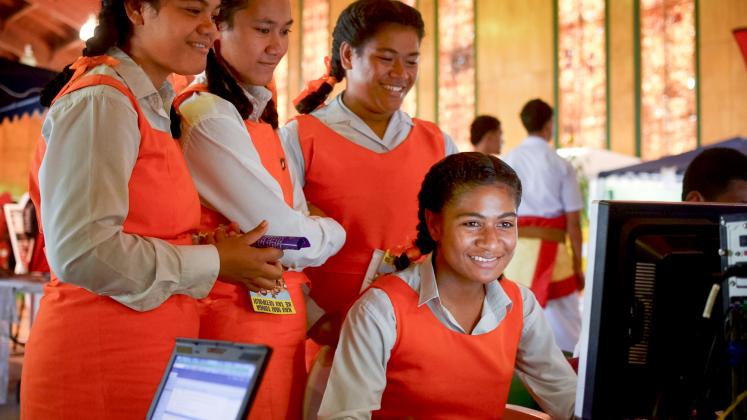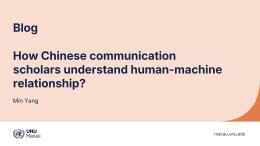When we think of fundamental human rights, we often consider freedoms such as the right to life, housing and social security. However, the right to education is just as essential, serving as both a fundamental right and a critical enabler of development.
As former United Nations Secretary-General Kofi Annan once said: “Knowledge is power. Information is liberating. Education is the premise of progress, in every society, in every family.”
Recognizing this, Article 26 of the Universal Declaration of Human Rights enshrines education as a fundamental right, and many national constitutions and regional human rights instruments reaffirm this commitment. Furthermore, the United Nations designated 24 January as the International Day of Education, celebrating its role in fostering peace and development. As a 1999 report for the US Department of Education put it: “Without education, the aims of the universal declaration simply cannot be achieved.”
The right to education is especially critical in today’s rapidly evolving digital economy. Technological advancements, specifically the rise of artificial intelligence (AI), are reshaping industries and redefining the future of work.
Excluded from economic opportunities
AI is automating tasks that were once exclusive to human workers, increasing efficiency but also raising concerns about job displacement. Without access to quality education, individuals risk being left behind, excluded from economic opportunities, and trapped in cycles of inequality.
To remain competitive in this shifting landscape, workers must continuously acquire relevant knowledge and skills.
As traditional jobs evolve and new roles emerge, education must adapt to equip individuals with essential digital skills. Coding, data analysis and AI literacy are increasingly foundational across various careers.
The rise of AI has also made it essential for workers to understand how to collaborate with intelligent systems, leveraging automation while focusing on human skills such as creativity, empathy, problem-solving and critical thinking.
Beyond technical proficiency, digital transformation demands adaptability and a blend of hard and soft skills — challenging traditional education models to evolve accordingly.
Despite concerns about job dislocation due to automation and AI, education can serve as a bridge to opportunities in emerging fields such as robotics, blockchain and 3D printing. AI-powered education platforms are also enhancing access to personalized learning, helping students and workers acquire skills at their own pace.
Digital education further enhances access to remote work and the gig economy, creating employment opportunities for historically marginalized populations.
Adequate societal protection
However, policymakers must ensure that workers in these new employment structures receive adequate social protection and are not excluded from labour rights and security benefits.
In response to the growing digital divide and the evolving global digital economy, international frameworks such as the Global Digital Compact and the African Digital Compact have emerged to guide digital transformation in an inclusive and equitable manner.
The Global Digital Compact, proposed as part of the broader efforts of the United Nations to shape digital governance, aims to ensure universal connectivity, promote digital public goods, and foster a safe, secure and inclusive digital environment. It emphasizes the need for global cooperation to bridge digital inequalities, enhance digital skills and safeguard human rights in the digital space.
Education plays a crucial role in realizing these objectives by equipping individuals with the necessary digital competencies to thrive in the modern economy.
Similarly, the African Digital Compact is the African Union initiative was designed to accelerate Africa’s digital transformation while addressing challenges such as limited internet access, inadequate digital infrastructure, and skills shortages. This compact prioritizes investments in digital literacy, connectivity, and policy frameworks that enable sustainable and inclusive digital growth.
Strengthening education systems to incorporate digital skills training is central to the success of this initiative, ensuring that African economies can fully participate in the global digital revolution.
Both compacts highlight the importance of education as a cornerstone of digital inclusion and economic resilience. By aligning national education policies with these frameworks, governments can foster a workforce that is prepared for the digital age, while promoting economic opportunities for all.
Transformative potential
Recognizing the transformative potential of emerging technologies, many governments have established specialized commissions to position countries positively in the Fourth Industrial Revolution (4IR). One such initiative is South Africa’s Presidential Commission on the 4IR, which played a pivotal role in shaping national strategies for digital transformation.
By emphasising education as a key enabler of 4IR readiness, the commission seeks to build a workforce with the necessary skills to adapt to a rapidly evolving technological landscape.
In addition to workforce development, the commission promotes digital infrastructure expansion, innovation hubs, and industry-academia collaboration to align educational curricula with the demands of emerging industries.
By integrating 4IR principles into national education policies, governments can create a robust framework for lifelong learning, ensuring that individuals remain employable and competitive in the digital age.
A strong example of the kind of digital education required in today’s world is the compulsory AI course for all students at the University of Johannesburg. This initiative ensures that students across disciplines develop foundational AI literacy, equipping them with skills necessary for the evolving job market. Such programmes demonstrate the importance of integrating digital skills into higher education curricula, helping to close the skills gap and prepare graduates for an AI-driven economy.
To close the education-employment gap, targeted policy interventions are necessary. These include:
- Promoting lifelong learning: Workers must continuously update their skills to remain competitive. Governments and industries should invest in ongoing training programmes to support upskilling and reskilling.
- Ensuring equal access to digital learning: Reliable internet access and necessary digital devices should be made available to all, reducing barriers to education.
- Embedding digital literacy in curricula: Schools must integrate digital skills into their curricula from an early age, ensuring future generations are prepared for the workforce.
- Making online learning affordable: Digital education should be financially accessible to maximize participation.
- Strengthening industry-academia collaboration: Partnerships between businesses and educational institutions can ensure curricula remain aligned with workforce needs.
- Preparing for an AI-driven future: Education systems should incorporate AI literacy, ethical considerations, and human-AI collaboration skills to prepare workers for a rapidly changing job market.
Education is not just a fundamental right — it is a key driver of employment and development in the digital era. As the United Nations Educational, Scientific and Cultural Organization aptly states: “Education is one of the most powerful tools in lifting excluded children and adults out of poverty and is a stepping stone to other fundamental human rights. It is the most sustainable investment.”
By equipping individuals with digital skills and fostering lifelong learning, we can build a workforce capable of directing the complexities of the modern economy.
Stakeholders — including governments, academic institutions and businesses — must prioritize education as a pathway to decent work and social inclusion. As a 1999 US Department of Education report reminds us: “Education is not a luxury but a right, and thus should not constitute a privilege.”
This article was first published by Daily Maverick. Read the original article on the Daily Maverick website.
Suggested citation: Letlhokwa George Mpedi, Tshilidzi Marwala. "Bridging the Digital Divide with Education as a Catalyst for Economic Inclusion and Growth," United Nations University, UNU Centre, 2025-02-10, https://unu.edu/article/bridging-digital-divide-education-catalyst-economic-inclusion-and-growth.





